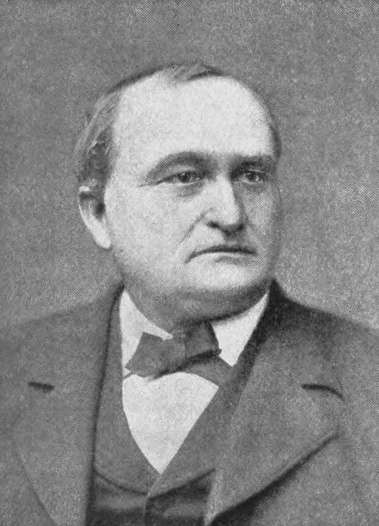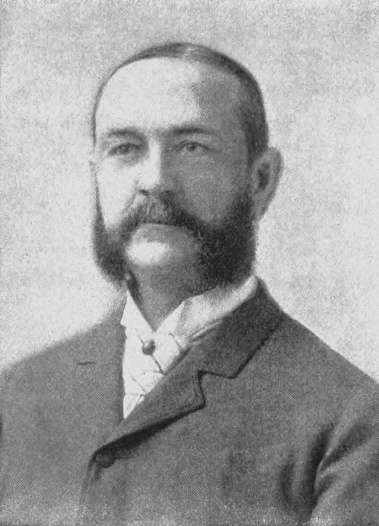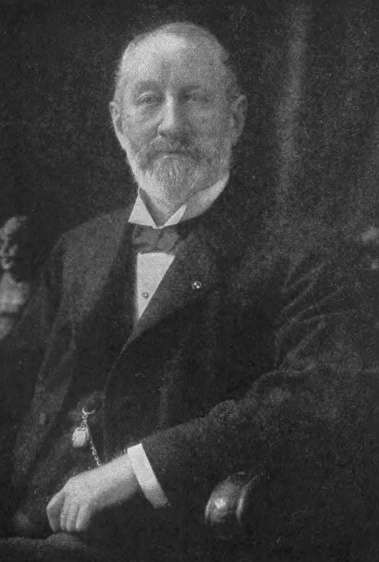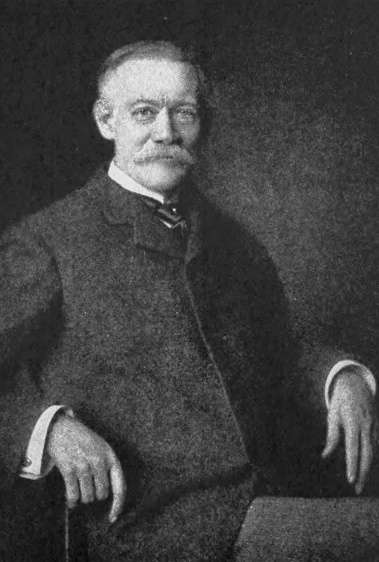

Driven off the Erie and Central, the firm made a running arrangement with Mr. Rockefeller for a year; the Standard bought the cars and agreed to furnish Ayres, Lombard and Company crude oil for a certain price at a certain time, and take the refined oil from them at a fixed price. This contract was made probably under the Refiners' Association which Mr. Rockefeller succeeded in effecting in August, 1872, after the failure of the South Improvement Company, which association, as we have already seen, took in fully four-fifths of the refining interests of the country. The contract continued, Mr. Lombard said in testimony, for a year or more, and was then terminated by notice from the Standard Oil Company. Soon after the termination of the contract with the Standard, which was either late in 1873 or early in 1874 (Mr. Lombard was not able to decide this when he was under examination), the firm began shipping over the Pennsylvania road. They bought part of their oil at this time from Adnah Neyhart. Now, sometime in 1875, as we have seen, Mr. Neyhart began to feel the Standard pressure and his business was sold to the Standard. Again Ayres, Lombard and Company found a large part of their supply of oil cut off. For about a year they shipped over the Pennsylvania. It was not long, however, before the concern found that even on the Pennsylvania they were under a disadvantage, that road having made in 1875 discriminating contracts with the Standard. Again the firm changed, buying its oil from J. A. Bostwick and Company of New York. Now Bostwick was the Standard Oil buyer, one of the original South Improvement Company, and a stockholder in the Standard Oil Company. Mr. Lombard swore that he had not been taking oil of Bostwick for more than a year before the Standard began to draw its lines around him, as he put it, and again the question arose how were they to get oil for their refinery. There seemed no way but to try to make a contract with the Pennsylvania Company. On the 18th of May, 1877, he went to Philadelphia and saw Colonel Potts, who told him he would be glad to have his shipments on the Pennsylvania. Accordingly a contract was made for a year, the company guaranteeing them as low a rate as anybody else had. But this contract of Mr. Lombard was destined to end as speedily and as disastrously as all of those he had been making for over five years, for in the fall of the year the Empire Line was sold to the Standard, and in the spring of 1878, when Mr. Lombard's contract ran out, the Pennsylvania refused to renew it on the terms they gave the Standard. Mr. Lombard gave a very interesting account of the interview he and his fellow refiners of New York had with Mr. Cassatt in reference to this matter:
"In March, 1878, I think it was by appointment, we had an interview with Mr. Cassatt, third vice-president of the Pennsylvania Railroad. There were present Mr. Bush, Mr. Gregory, Mr. Burke, Mr. Ohlen, and myself, besides Mr. Cassatt. It was held in Mr. Bush's office, 123 Pearl street, New York. We sought that interview for the purpose of finding out what our position would be on the Pennsylvania Railroad after the termination of our contract with the Empire Line, which they had assumed. We had quite a plain talk on the subject. We began by telling Mr. Cassatt something that he already knew — that we for the past year had been probably the largest shippers over the Pennsylvania Railroad that they had had; largest shippers of petroleum. He acknowledged it, and we asked him if we should, after the first of May, be on the same footing and have as low a rate of freight as anybody else, which was guaranteed by contract up to that time. He said no, we would not. We asked him why not. Well, he said, it would not be satisfactory to the Standard Oil Company. I then put the question to him what difference it made to the Pennsylvania Railroad Company whether it was satisfactory to the Standard Oil Company or not. He said that the Standard Oil Company was the only party which could keep peace between the trunk lines. I said, It seems to me you have the matter very much in your own hands; there are but four of you; if you agree upon a certain rate of freight the oil is to come forward at, I see no use of the intervention of a third party or a fifth party in this case. He said, I cannot trust — or rather, he said, They are the only people that can keep harmony. Then we had a little discussion about the rates. He said that they had been bringing oil for the past year at a very low rate. I told him I understood it was a little over seventy cents an average on crude petroleum. He denied it, and said it was not. Then when we were talking about the subject of rates, he said of course the rates on petroleum were very profitable, and said we could find out the rate at which they could bring petroleum, if they were compelled to, by looking up their annual report, and seeing the cost a ton per mile, which was something like five or six mills per ton per mile, and which if we figured that it would be a very profitable business. We told him we did not object to him making a good profit at any time; all we wished was to have as low a rate of freight as anybody else had, which we could not get.
"He said we had better make an arrangement with the Standard and we would all of us make money, and that they had a very large business and proposed to make money, and the discrimination would be so light against us that we would hardly notice it, and we formed the idea from what he said. We asked him whether the discrimination against us would be larger if the rate of freight were high than it would if the rate of freight were low. He said, yes, it would be, but he said the discrimination would be very small. We tried to find out by asking what it would be, but did not succeed. He then said if we would unite with the Standard we would do better and everything would be peaceable and harmonious, and he would use his efforts to promote such a union if we wished it. We told him we did not wish to unite with the Standard; we dealt on freight matters with the Pennsylvania Railroad, not with the Standard Oil Company.
"There was another interview at which Mr. Bush, Mr. Ohlen, Mr. Cassatt, and myself were the only parties as I remember it; it was held in Pennsylvania, at the office of the Pennsylvania Railroad Company, in the last part of May or early part of June; it was at the time of what we called the squeeze in cars. Previous to that time we had had all the cars we wanted without any difficulty; at that time and when we were wanting just about the same kind of cars we had previously been wanting, and business was running on very easily, we found we were unable to get anything like the amounts we had before; instead of getting for the firm I represented from twelve to fifteen cars a day, we were getting only one or two — utterly insufficient for the business. We came over to see Mr. Cassatt about it — Mr. Bush, Mr. Ohlen, and myself. He said he knew there was trouble; that the other side, the Standard Oil Company, had some five hundred cars full here at Philadelphia and Baltimore; that he had not discovered it until recently, but that he would have it remedied. They had been holding them here full. I asked him why, if he knew of the cars being detained, he kept giving them cars. He said he did not know exactly how that was. I told him if these cars were shipped here and held, it seemed to me they ought to stop giving cars to parties holding them. He said the matter would be remedied soon. We asked him how soon. He could not tell exactly. I said, 'Can't you stop giving them cars?' He said he would remedy the matter, we should have all the cars we needed; and it was at that time that he made the remark to which Mr. Bush testified, when we had some little general conversation, that if we built a pipe-line he would buy it up for old iron in sixty days. I think I remarked that the Conduit Pipe brought a good price for old iron, in a laughing way. The interview was pleasant enough. Then early in July I think it was the last part of June or early part of July — Mr. Ohlen, Mr. Bush, Mr. Wilson, Mr. King, Mr. Gregory, and myself came to Philadelphia and met Colonel Scott, president of the Pennsylvania Railroad, Mr. Cassatt, and Mr. Brundred at the office of the Pennsylvania road, with the same trouble, the same two troubles as of old, a scarcity of cars and a discrimination in freight. As to scarcity of cars, they claimed that we were getting our allotment. We told them we knew nothing about an allotment, that previous to the first of May we had sufficient cars for our business; since that time we got scarcely any; that if they had not sufficient cars to do the business with we would put on cars. Mr. Scott said they would not allow that, they had bought out one line and did not propose to have another; we then demanded cars for the business, making again the offer to put on cars if they could not furnish them, with the same result. He said they had already fought one fight in our behalf which cost them a million and a half of dollars. We told them not at all in our behalf, we had nothing to do with it; we were simply shippers over the road and did not participate in the matter at all; it was a matter of their own. He seemed to be a little sore about that. When he made the remark which has been given in evidence before, he said there would be no peace or profit in the business until we made some arrangement with the Standard Oil Company; he would be very glad to have such an arrangement made, and would do all in his power to accomplish it. We told him we did not wish any arrangement with the Standard Oil Company; we had been dealing for years with the Pennsylvania Railroad Company, and we wished to deal with them now on all transportation and freight matters. I think there was nothing further in that interview.
"He asked why we did not apply to the other roads for transportation. We told him we had. He said, with what results? That the Central Road had no cars of their own. He said that was a very flimsy pretext. I said that the Erie road cars were controlled by the Standard Oil Company, and the Central cars were controlled by the Standard Oil Company. That in fact the whole transportation of the oil country seemed to be controlled by the Standard Oil Company, and the New York Central, and the Erie, and the Pennsylvania Central, and the Baltimore and Ohio, they controlled the whole thing, and there was no chance, and in addition to that we had been shippers and customers of the Pennsylvania road for years."
Naturally enough, men who had been through such experiences as these of Mr. Lombard were glad to unite with the Tidewater, which promised to free them from the railroads and their chief competition, and they promised to take all their supply from the line.
The success of the Tidewater experiment brought Mr. Rockefeller face to face with a new situation. Just how serious this situation was is shown by the difference in the cost of transporting a barrel of oil to the seaboard by rail and transporting it by pipe. According to the calculation of Mr. Gowen, the president of the Reading Railroad, the cost by rail was at that time from thirty-five to forty-five cents. The open rate was from $1.25 to $1.40, and the Standard Oil Company probably paid about eighty-five cents, when the roads were not protecting it from "injury by competition." Now, according to General Haupt's calculation in 1876, oil could be carried in pipes from the Oil Regions to the seaboard for 16-2/3 cents a barrel. General Haupt calculated the average difference in cost of the two systems to be twenty-three cents, enough to pay twenty-eight per cent. dividends on the cost of a line even if the railway put their freights down to cost. This little calculation is enough to show that the day of the railroads as long-distance transporters of crude oil was over; that the pipe-lines were bound to replace them. Now, Mr. Rockefeller had by ten years of effort made the roads his servant; would he be able to control the new carrier? A man of lesser intellect might not have foreseen the inevitableness of the new situation; a man of lesser courage would not have sprung to meet it. Mr. Rockefeller, however, is like all great generals: he never fails to foresee where the battle is to be fought; he never fails to get the choice of positions. He wasted no time now in deciding what should be done. He proposed not merely to control future long-distance oil transportation; he proposed to own it outright.
Hardly had the news of the success of the Tidewater's experiment reached the Standard before this truly Napoleonic decision was being carried out. Mr. Rockefeller had secured a right of way from the Bradford field to Bayonne, New Jersey, and was laying a seaboard pipe-line of his own. At the same time he set out to acquire a right of way to Philadelphia, and soon a line to that point was under construction. Even before these seaboard lines were ready, pipes had been laid from the Oil Regions to the Standard's inland refining points — Cleveland, Buffalo and Pittsburg. With the completion of this system Mr. Rockefeller would be independent of the railroads as far as the transportation of crude oil was concerned. It was, of course, a new department in his business, and, to manage it, a new company was organised in April, 1881 — the National Transit Company — with a capital of five million dollars, and a charter of historical interest, for it was a mate of the charter of the ill-fated South Improvement Company, granted by the same Legislature and giving the same omnibus privileges — the right in fact to do any kind of business, except banking, in any part of the world. The South Improvement Company charter, as we have seen, was repealed. The charter which the National Transit Company now bought seems to have gone into hiding when the character of its mate was disclosed and so had been forgotten. How it came to be unearthed by the Standard or what they paid for it, the writer does not know. However, as H. H. Rogers aptly told the Industrial Commission in 1899, when he was asked if a considerable sum was not given for it: "I should suppose every good thing had to be paid for; I should say a man owning a charter of that kind would sell it at the best price he could get."




 |
Table of Contents |  |